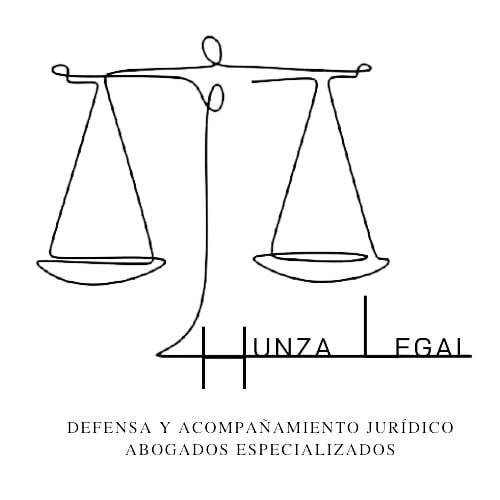Best Employment Rights Lawyers in Tunja
Share your needs with us, get contacted by law firms.
Free. Takes 2 min.
List of the best lawyers in Tunja, Colombia
About Employment Rights Law in Tunja, Colombia
Employment rights in Tunja, Colombia are governed primarily by the Colombian Labor Code (Código Sustantivo del Trabajo) and a framework of national and regional regulations. Tunja, as the capital city of the Boyacá department, follows the country’s legal standards for labor relations, worker protections, and employment contracts. These laws cover both formal and informal workers, establishing clear guidelines for hiring, contracts, wages, working hours, leaves, occupational safety, anti-discrimination, and termination. The Ministry of Labor and local offices like the Personería Municipal play integral roles in defending employees’ rights and resolving workplace conflicts.
Why You May Need a Lawyer
Legal assistance can be crucial in many employment situations. A lawyer with expertise in employment law in Tunja can help you understand your rights, prepare legal documents, or represent you before labor courts and administrative bodies. Common reasons you may need a lawyer include:
- Unfair dismissal or wrongful termination
- Issues with unpaid wages, overtime, or social security contributions
- Workplace harassment or discrimination
- Violation of employment terms by the employer or employee
- Negotiation of severance payments and final settlements
- Claims regarding occupational health and safety
- Advice on employment contracts or workplace policies
- Representation during labor inspections or investigations
Local Laws Overview
Key aspects of employment law in Tunja are consistent with national Colombian regulations but often have regional practices and enforcement approaches. Important local considerations include:
- All employment contracts, including for domestic work and agriculture, must comply with the minimum wage and labor conditions established by law.
- Employers must register workers with the social security system (pension, health, and occupational risk).
- Normal working hours are 48 per week, typically spread over six days, with specific limits on overtime and mandatory rest periods.
- Workers have rights to paid holidays, sick leave, maternity and paternity leave, and other statutory benefits.
- Discrimination based on gender, ethnic origin, religion, or other grounds is prohibited in the workplace.
- Employees can seek help from the local office of the Ministry of Labor or the Personería Municipal if their rights are violated.
- Labor disputes can be resolved through conciliation, administrative proceedings, or labor court processes.
- Seasonal and fixed-term contracts are regulated and must meet specific requirements to prevent abuse.
Frequently Asked Questions
What documents do I need for a valid employment contract?
A labor contract in Colombia should clearly state the job duties, salary, working hours, duration (fixed or indefinite), workplace location, and social security registration. Although verbal contracts are allowed, written contracts are recommended for clarity and legal certainty.
What is the current minimum wage in Tunja?
The minimum wage in Tunja is set annually by the Colombian government and applies nationwide. For 2024, the monthly minimum wage is determined by law and includes a transportation subsidy, amounting to a standard base for any legal employment relationship.
How do I report workplace harassment or discrimination?
You should initially report incidents to your employer’s human resources department. If the issue persists, you can file a complaint with the Ministry of Labor, Personería, or Defensoría del Pueblo offices in Tunja for further investigation and support.
Am I entitled to severance pay if I am dismissed?
Employees with indefinite contracts are generally entitled to severance pay if dismissed without just cause. The calculation varies depending on the employee’s salary and years of service. Fixed-term contract terminations must comply with the agreed terms and notice periods.
How many vacation days am I entitled to?
After completing one year of continuous employment, workers in Colombia earn 15 paid vacation days each year. Vacation days must be granted by the employer and cannot be replaced with payment except in specific circumstances dictated by law.
What should I do if my employer does not pay my social security?
You can request your employer to provide proof of payment and, if they do not comply, report them to the Ministry of Labor or labor inspectorate. Lack of social security contributions is a serious legal violation with possible penalties for the employer.
Are domestic workers covered by employment law?
Yes. Domestic workers in Tunja have the same rights as other formal employees, including minimum wage, social security, severance, and paid leave. Their work conditions should be outlined in a contract, whether verbal or written.
Can an employer dismiss an employee without warning?
Employers are required to provide justification for dismissals and may need to give prior notice or pay compensation, depending on the case. Immediate dismissal is only allowed for certain serious offenses clearly defined by law.
How are overtime hours compensated?
Overtime must be paid at higher rates, depending on whether the extra hours are daytime, nighttime, Sundays, or holidays. Compensation can range from 25 percent to 100 percent above the standard hourly wage.
What are my options if my rights are not respected at work?
You can seek informal resolution with your employer, report issues to the Ministry of Labor or Personería, or pursue legal action in labor courts if necessary. Legal advice from a specialized attorney is highly recommended for complex cases.
Additional Resources
People seeking assistance with employment rights in Tunja can refer to the following resources:
- Ministry of Labor (Ministerio del Trabajo) - The main authority responsible for labor rights enforcement, complaints, and legalization of employment situations.
- Personería Municipal de Tunja - Provides free legal advice and assistance to workers and mediates workplace conflicts.
- Defensoría del Pueblo - Represents individuals in vulnerable situations and helps protect fundamental rights.
- Trade unions and worker associations - Offer support, representation, and information on collective labor rights.
- Centro de Conciliación - Local centers that facilitate out-of-court settlement of labor disputes.
Next Steps
If you believe your employment rights have been violated or need legal guidance, you should start by gathering all relevant documents such as your employment contract, pay slips, and record of communications with your employer. Contacting a qualified labor lawyer in Tunja can clarify your options and help protect your rights. You may also approach the Ministry of Labor or Personería for free initial advice and assistance. In urgent cases, such as dismissal or workplace injury, seek legal counsel immediately to avoid missing important deadlines. Taking proactive steps early can help you achieve a fair outcome and uphold your rights under Colombian and local law.
Lawzana helps you find the best lawyers and law firms in Tunja through a curated and pre-screened list of qualified legal professionals. Our platform offers rankings and detailed profiles of attorneys and law firms, allowing you to compare based on practice areas, including Employment Rights, experience, and client feedback.
Each profile includes a description of the firm's areas of practice, client reviews, team members and partners, year of establishment, spoken languages, office locations, contact information, social media presence, and any published articles or resources. Most firms on our platform speak English and are experienced in both local and international legal matters.
Get a quote from top-rated law firms in Tunja, Colombia — quickly, securely, and without unnecessary hassle.
Disclaimer:
The information provided on this page is for general informational purposes only and does not constitute legal advice. While we strive to ensure the accuracy and relevance of the content, legal information may change over time, and interpretations of the law can vary. You should always consult with a qualified legal professional for advice specific to your situation.
We disclaim all liability for actions taken or not taken based on the content of this page. If you believe any information is incorrect or outdated, please contact us, and we will review and update it where appropriate.











